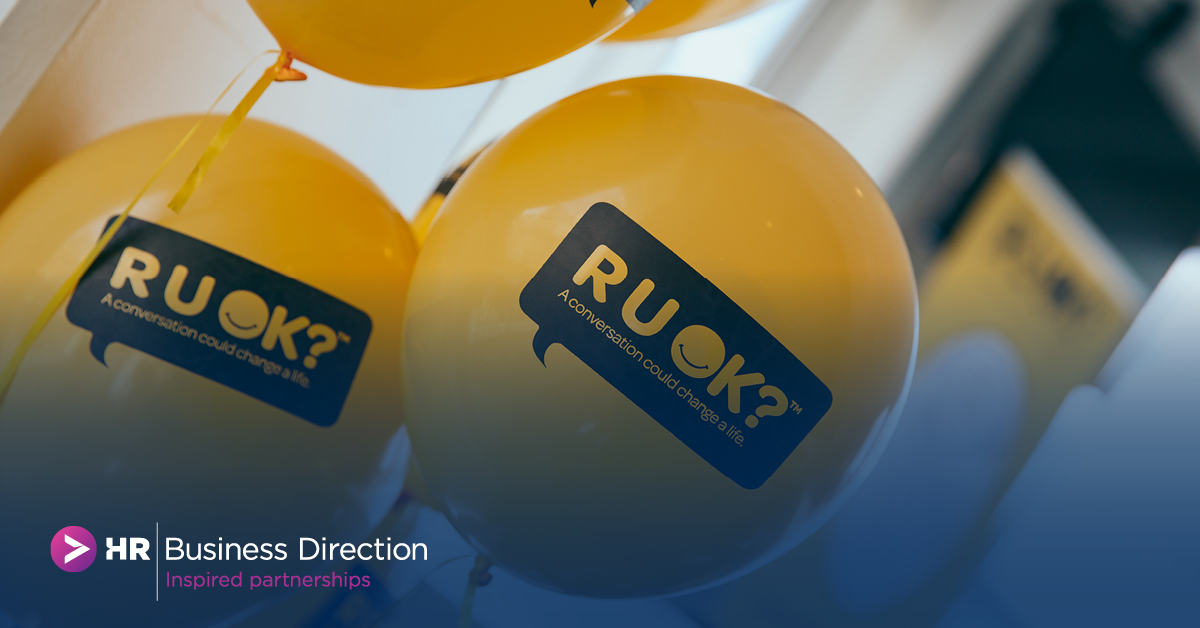3 Simple, Sharable Tips To Help Make Sure UROK


Recently we celebrated RUOK? day in workplaces all around Australia. RUOK Day is a fantastic initiative designed to inspire and empower everyone to meaningfully connect with people around them and support anyone struggling with life using three simple words that can start a powerful conversation – “RUOK?”.
There’s a lot to like about the RUOK? day approach to mental health but for me two things jump out:
Simplicity – RUOK? Day works because it takes a subject that for some can seem complex, or even taboo and makes it accessible. Everyone can ask ”RUOK?”. In providing such simplicity, the RUOK? Day movement offers empowerment to all those who despite good intentions, feel dwarfed by not knowing where to begin in building a culture where mental health and wellbeing are prioritized – RUOK? Day lowers the barriers.
Shareability – The team behind RUOK? day has done a fantastic job. The day has taken on a viral nature that big brand advertisers could only dream of. The team has distilled the notion that social connection is one of the foundations of good mental health into six short, sharp, and tweetable characters – #RUOK?. With mobile devices dominating, and more people than ever turning to Dr Google for health advice (for good or bad), it’s clear that the future of good mental health is online.
With these two traits in mind I’d like to share with you 3 simple and sharable resources that can help ensure that UROK.
1. Fake it until you become it
Famed Social Psychologist, Amy Cuddy’s 20-minute TED talk is ranked in the top ten TED Talks of all time, and for good reason, it could change your life. In her talk Amy explores the power of body language, both how it affects how others see us, but (and more importantly) how we see ourselves. Amy demonstrates that something as simple as “power posing” — standing in a posture of confidence, even when we don’t feel confident — can affect testosterone and cortisol levels in the brain, and even has an impact on our chances for success. Watch Amy’s TED Talk here.
2. What You Focus On Grows
Have you ever scanned through social media and felt nauseated by seeing blessed hashtag (#blessed)? If so, i’d like you to reconsider, because what we focus on grows. With so much going on around us it can be easy to miss out on the good thing in life. Worse yet, if we’re leeching from crisis to crisis without taking pause it can seem like everything is a crisis. To overcome this, we can train ourselves to seek out positivity through using a daily gratitude journal. Taking 5-10 minutes out each day devoted to intentionally thinking about and noting down three good things in our lives provides a chance to reset, take perspective, and primes us to look on the bright side of life through the day. You can find learn more about the power of gratitude journaling here.
3. Start With The End In Mind
Whenever we plan projects we set goals and milestones – In other words we have an ideal end state in mind. Unfortunately, far too many of us fail to apply this same principle to our lives, and without having a laser like focus on the end point, it’s easy to stray from the course that will get us there. So while it may seem morbid, in order to stick to our goals and reveal our true life’s purpose, we have to start each day with the end in mind. A quick exercise that can help to bring this into focus involves, a blank piece of paper and pen, some uninterrupted alone time, and the following questions:
If I only had one day to live, what would I do?
If I only had one week to live, what would I do?
If I only had one month to live, what would I do?
If I only had one year to live, what would I do?
If I only had five years to live, what would I do?
If I only had one lifetime to live what would I do?
When you finish writing, stop and look back through your answers and notice the common themes – here your true life purpose will begin to reveal itself. What will you do with it today?
If you found these simple tips useful please share, and if you have any simple and sharable wellbeing boosters of your own please comment!
HR Business Direction are proud supporters of RUOK? in the promotion of regular, meaningful conversations in the workplace.
Alistair Kerr MPsychOrg; PostGradDip Psych; BPsych
Organisational Development Strategist | Psychologist
alistair.kerr@hrbd.com.au
07 3890 2066
www.hrbd.com.au

